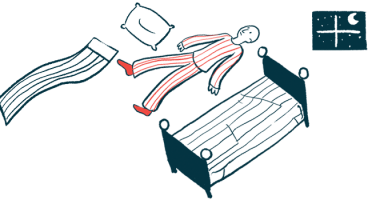Dosing Begins in Phase 1 Trial of Stem Cell Therapy for Bradykinesia

A first patient has been dosed in IMAC Holdings’ Phase 1 clinical trial evaluating its investigational umbilical cord-derived mesenchymal stem cells (MSCs) as a potential treatment for bradykinesia, a common motor symptom of Parkinson’s disease.
The infusion treatment was given on Dec. 29, 2020, by the trial’s lead investigator Ricardo Knight, MD, at IMAC’s facility in Brentwood, Tennessee, the company announced.
“The first infusion of our proprietary compound is a significant milestone in its development, as well as in the development of IMAC, expanding our capabilities as a regenerative rehabilitation company,” said Jeffrey Ervin, IMAC’s CEO.
Bradykinesia is characterized by slowness or difficulty in movement and is one of the early signs of Parkinson’s disease. Although the mechanisms resulting in bradykinesia remain unclear, an inflammatory component seems to be involved.
Stem cells, due to their capacity to continuously divide and differentiate into various cell types, have gained interest as potential treatments in different areas, including as a regenerative medicine for neurological disorders such as Parkinson’s.
MSCs are a type of adult stem cell found in multiple tissues, including the umbilical cord, bone marrow, and fat. Because of its anti-inflammatory properties, MSCs may help to treat bradykinesia by modulating the immune system and easing inflammation.
IMAC’s open-label trial (NCT04385056) is evaluating the safety and tolerability of escalating doses of allogeneic mesenchymal stem cells to treat patients with bradykinesia. Unlike autologous stem cells that are collected from a patient’s own tissues, allogeneic stem cells are derived from a healthy donor, and used to replace a person’s diseased or damaged cells.
The trial aims to enroll 15 Parkinson’s patients, ages 55 or older, who have been experiencing bradykinesia for at least three months before enrollment. Patients can be on a stable levodopa or other standard treatment dose.
Participants will be randomly assigned to one of three dose groups — low, medium or high — and treated with a single intravenous (into the vein) infusion. Patients will then be followed for 12 months by IMAC doctors and physical therapists.
The still-enrolling study is being conducted at three of IMAC’s clinical centers: Chesterfield, Missouri; Paducah, Kentucky; and Brentwood. Contact and other information can be found here.
“We have already received significant interest from patients across our regenerative medicine centers to participate in the trial, and we are actively screening these inquiries to identify those who fit the inclusion criteria of the trial. We anticipate full patient enrollment by the end of February 2021, with subsequent infusions continuing in early 2021,” Ervin said.






